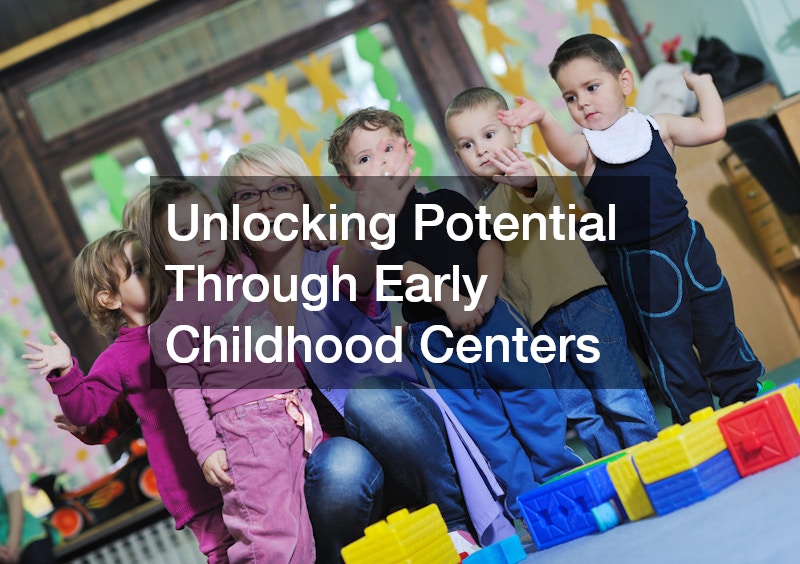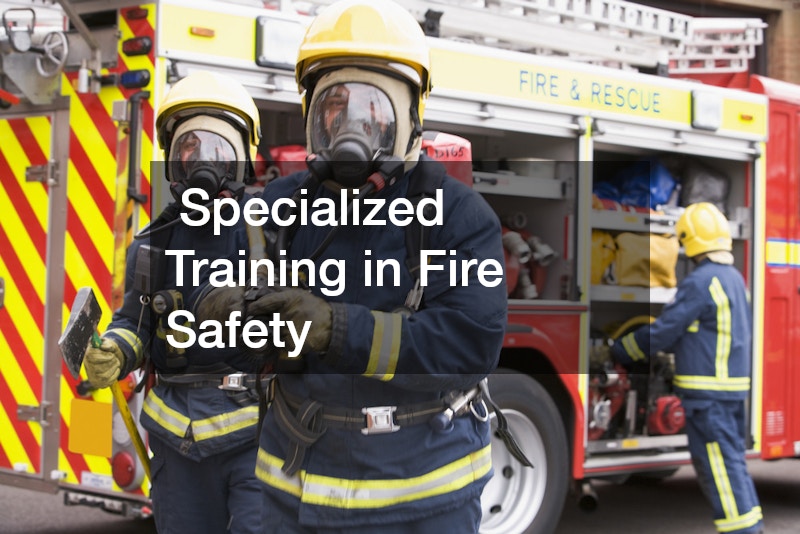In today’s fast-paced world, parents and educators alike are looking beyond the traditional classroom to find enriching, engaging, and academic driven experiences for students of all ages. Whether it’s boosting early literacy skills or cultivating career-ready expertise, the need for supplementary educational outlets has never been greater. Extracurricular and academic programs bridge the gap between school curricula and real-world learning, offering students an advantage in both personal and academic development. These opportunities are not just for high achievers—they’re for any student looking to explore passions, gain practical knowledge, or simply grow in confidence. From young children in daycares to adults seeking OSHA training in Spanish, academic driven environments meet learners where they are and take them further.
This blog explores 12 diverse and effective places that foster extracurricular and academic driven learning. Whether your child dreams of flying, building robots, or entering the legal field, there’s a program tailored to that ambition. These options include a range of settings, from hands-on technical training facilities to enrichment programs designed for cognitive and social-emotional development. Importantly, they support learners from early childhood through adulthood, reflecting a lifelong learning philosophy.
We’ll highlight specialized training institutions like flight schools, optometry practices, and fire safety programs, as well as more general institutions such as prep schools and STEM academies. Each destination is uniquely positioned to provide an academic driven experience that enhances both classroom knowledge and real-world application. Through this guide, you’ll discover how to better align your child’s (or your own) extracurricular engagements with academic goals. Let’s explore the top 12 places making a real difference in education today.
1. Soaring High Through Flight

Flight schools offer a unique and deeply academic driven path for students interested in aviation, engineering, or technology. These schools combine hands-on simulator experience, real-time flight instruction, and complex scientific concepts, giving students a foundation in math, physics, and meteorology. More than just learning how to pilot an aircraft, students engage in critical thinking, problem-solving, and communication—skills that serve them in a variety of academic and professional fields. Flight schools instill discipline and attention to detail, making them ideal for students pursuing careers in STEM or military aviation. Through FAA certification pathways and academic driven curricula, flight schools cultivate a sense of responsibility and achievement.
2. Preparing the Groundwork Prep Schools
Prep schools are renowned for cultivating academic excellence. With smaller class sizes, rigorous curriculums, and access to extracurriculars like debate, robotics, and foreign languages, these institutions help students become college-ready. A prep school’s mission is inherently academic driven, emphasizing critical analysis, communication, and time management. Most also offer advanced placement (AP) or International Baccalaureate (IB) programs, giving students a head start in higher education. Enrichment opportunities such as guest lectures, academic competitions, and language immersion further expand student horizons. These academic driven environments allow students to gain confidence in their learning abilities while forming relationships that last a lifetime.
3. Learning Starts Early in Programs
Daycares do more than provide supervision—they lay the academic groundwork for future learning. Many modern daycare centers incorporate academic driven programming such as early literacy, numeracy, and science exploration into their daily routines. Structured activities help toddlers and preschoolers develop fine motor skills, language fluency, and emotional intelligence. Creative play, music, and storytelling are not just fun—they’re strategically designed to support cognitive development. For working parents, daycares with an academic driven focus provide peace of mind, knowing their children are engaging in meaningful learning experiences. Early exposure to these concepts leads to better performance in kindergarten and beyond.
4. Unlocking Potential Through Early Childhood Centers

Early childhood learning centers are focused entirely on the educational development of children between the ages of three and eight. These centers implement academic driven curricula that promote literacy, numeracy, and socio-emotional development through thematic units and discovery-based learning. Children explore science, technology, art, and problem-solving in a structured yet nurturing environment. Certified educators create personalized learning plans to suit each child’s learning pace and interests. Academic driven initiatives like portfolio assessments, phonics instruction, and math manipulatives prepare young learners for success in elementary school. These centers also emphasize parental involvement to strengthen home-school learning connections.
5. Fueling Innovation at Schools
STEM schools are the epitome of academic driven education. By integrating science, technology, engineering, and math into a project-based learning framework, these schools foster creativity, analytical thinking, and collaboration. Students engage in robotics competitions, 3D printing projects, coding exercises, and real-world problem-solving scenarios that mirror industry demands. Whether a student is interested in environmental science, biomedical engineering, or software development, STEM schools offer hands-on opportunities that bring textbook concepts to life. The academic driven approach encourages curiosity and persistence, essential traits for long-term academic and career success. Many STEM schools also partner with tech companies, providing internship opportunities and mentorship.
6. Libraries and Community Learning Hubs
Public libraries and community learning hubs are often-overlooked resources for academic driven development. Libraries offer reading programs, study spaces, maker labs, and digital literacy classes for learners of all ages. With free access to academic databases, tutoring, and educational workshops, they serve as equalizers in the education landscape. Community learning hubs sometimes host guest lectures, science fairs, and writing workshops, allowing students to engage beyond the classroom. The academic driven nature of these environments supports independent learning and lifelong intellectual curiosity. Many even offer remote learning stations and career preparation seminars.
7. Specialized Training in Fire Safety

Fire sprinkler classes are essential for students interested in fire science, engineering, and safety compliance. These programs offer academic driven coursework focusing on code regulations, fluid dynamics, and system design. Whether part of a vocational high school program or a post-secondary certificate course, fire sprinkler education includes hands-on training with real-world applications. Students learn about blueprints, CAD systems, and building safety protocols. These academic driven classes not only prepare students for immediate employment but also open doors to careers in civil engineering, firefighting, and inspection services.
8. Accessibility in OSHA Traning
For non-English speaking students, especially Spanish speakers, OSHA training Spanish provides a crucial academic driven path toward safety certification and workplace readiness. These programs cover critical information on workplace hazards, injury prevention, and legal rights in a format that’s both linguistically and culturally relevant. This makes academic driven training more inclusive and accessible. Spanish-language OSHA courses serve industries such as construction, manufacturing, and logistics, allowing learners to meet federal compliance while enhancing their employability. The bilingual approach bridges communication gaps and ensures all workers, regardless of language, receive proper training.
9. Eye on Education with Optometry
Optometrists often provide internship or shadowing opportunities that are deeply academic driven. These experiences introduce students to anatomy, physiology, optical technology, and patient care practices. Aspiring health professionals benefit from hands-on exposure and can often assist with vision screenings or administrative tasks. Academic driven experiences in optometry foster interest in healthcare careers while teaching professionalism and empathy. Whether through formal internship programs or high school job-shadowing initiatives, these opportunities enhance a student’s understanding of biology, chemistry, and patient relations.
10. Mentorship and Insight from Appraisal

Commercial appraisers offer a unique blend of math, economics, and legal knowledge, making their offices prime environments for academic driven internships. Students interested in finance, real estate, or urban planning can gain insight into property valuation, zoning laws, and market trends. Interns often assist with data collection, analysis, and report generation, allowing them to apply classroom math and research skills in meaningful ways. These academic driven experiences can clarify career paths and bolster college applications. Professionals in this field often mentor students, providing feedback and career advice.
11. Real-World Learning at Law Firms
Working or interning at a personal injury law firm offers students exposure to legal research, writing, and client interaction in an academic driven setting. Students may assist in organizing case files, attending hearings, or drafting documents under supervision. These real-world experiences reinforce academic skills in English, civics, and ethics. For students considering law or public service careers, the academic driven atmosphere of a legal office fosters analytical reasoning and effective communication. These firms often support educational outreach or mentorship programs aimed at encouraging future legal professionals.
12. Cumulative Learning Across Institutions
All of these programs—whether flight schools or daycares, law firms or optometry clinics—demonstrate how extracurricular venues can create academic driven growth opportunities. One of the key takeaways is that learning doesn’t stop when the bell rings. Each of these institutions offers a specialized, focused environment where academic skills are not only applied but deepened. Students in OSHA training or fire safety classes master compliance rules, while those in optometry or law settings strengthen their science and writing skills. Meanwhile, early childhood education centers and STEM schools scaffold knowledge and curiosity from an early age.
These institutions work together in a mosaic of lifelong education. A student may start their journey in a daycare focused on literacy, move into STEM-based primary school projects, and later find a calling in law or aviation. The unifying thread is the commitment to academic driven enrichment that encourages independence, skill development, and future readiness. Whether formal or informal, these experiences are complementary, not competitive, with school-based education. For parents, students, and educators looking to expand the learning horizon, these 12 destinations provide powerful options for engagement.
Academic driven learning doesn’t need to be confined to the four walls of a classroom. In fact, many of the most impactful educational experiences happen in places students least expect—flight decks, optometrist offices, STEM labs, and legal libraries. The 12 extracurricular and academic spaces we’ve explored in this blog demonstrate the wide array of opportunities available to learners today. Each location brings something unique to the table, catering to different interests, developmental stages, and career ambitions. From early childhood centers that spark curiosity to professional environments that hone real-world skills, these options support a holistic and academically enriching journey.
Whether you’re a parent looking to invest in your child’s future or a student eager to explore career paths, the resources are out there. Programs like OSHA training in Spanish make learning more inclusive, while fire sprinkler classes provide hands-on technical education. Prep schools and STEM academies build rigorous academic foundations, while commercial appraisers and personal injury law firms give students a taste of professional life. The best part? Each one is academic driven, ensuring every experience contributes to long-term growth.
Ultimately, these places represent a shift in how we approach education—embracing flexibility, creativity, and real-world integration. Education today is more dynamic than ever, and learners who take advantage of these opportunities are better prepared to face the challenges and demands of tomorrow. Let this guide serve as your starting point for discovering impactful learning environments. Whether you’re seeking early childhood enrichment or career-building internships, these 12 destinations offer the academic driven advantage that can elevate any educational journey.
As we look toward the future of education, it becomes increasingly clear that the most valuable learning environments are those that combine rigor with relevance. Academic driven programs across various fields—from legal internships and optometry clinics to fire safety courses and preparatory schools—emphasize not just the acquisition of knowledge but its practical application. This alignment between academic theory and real-world experience is what makes these programs so transformative. They teach students how to think critically, solve problems creatively, and communicate effectively. Moreover, they foster adaptability, resilience, and a lifelong love of learning—traits that are essential in today’s rapidly changing world. Parents and educators who seek out these academic driven opportunities provide their children and students with a competitive edge, one that is built not on rote memorization but on dynamic engagement. By weaving together classroom learning with experiential opportunities, we create a holistic model of education—one that prepares individuals not just to succeed academically but to thrive personally and professionally. These 12 destinations serve as a roadmap for those who believe in empowering learners at every stage of life.
As industries evolve and technologies advance, the demand for professionals who can bridge theory and practice continues to rise. Educational institutions that prioritize integrated learning experiences not only equip students with essential skills but also instill a sense of purpose and direction. When learners are exposed to meaningful, hands-on environments early on, they begin to see the direct impact of their education on the world around them. This fosters confidence and encourages initiative—qualities that employers and communities value highly. Furthermore, these immersive programs often build strong mentorship networks, allowing students to connect with professionals who can guide their growth. The ripple effect of such programs can be felt beyond individual achievement, influencing innovation, civic responsibility, and collective progress.

